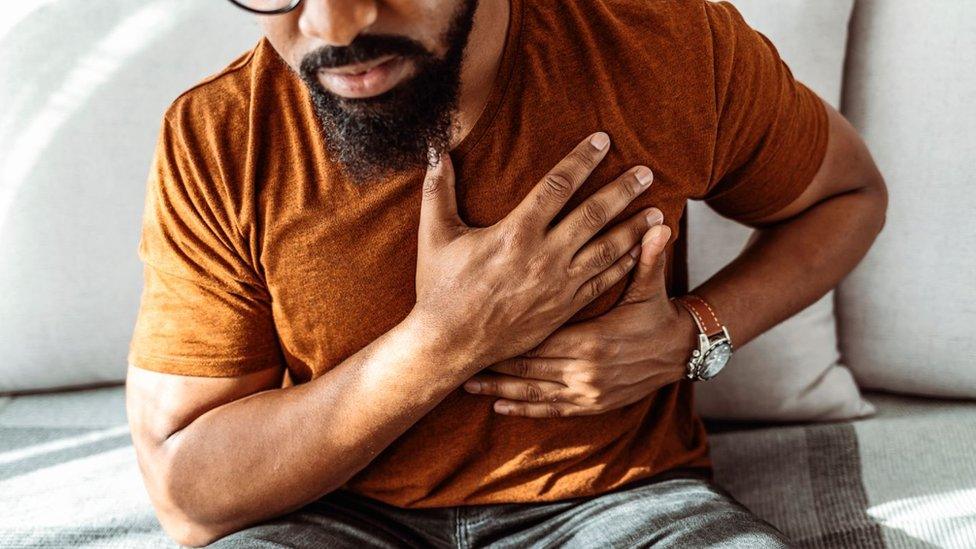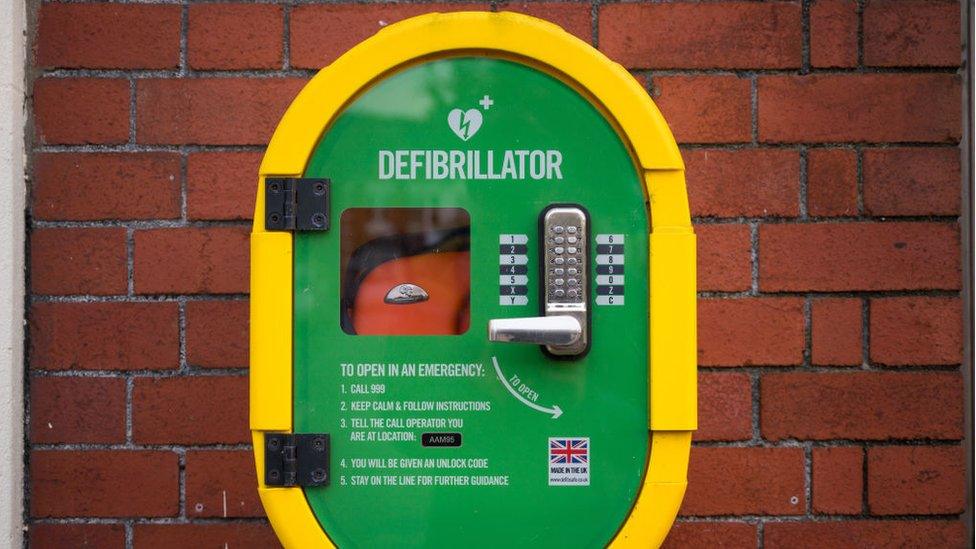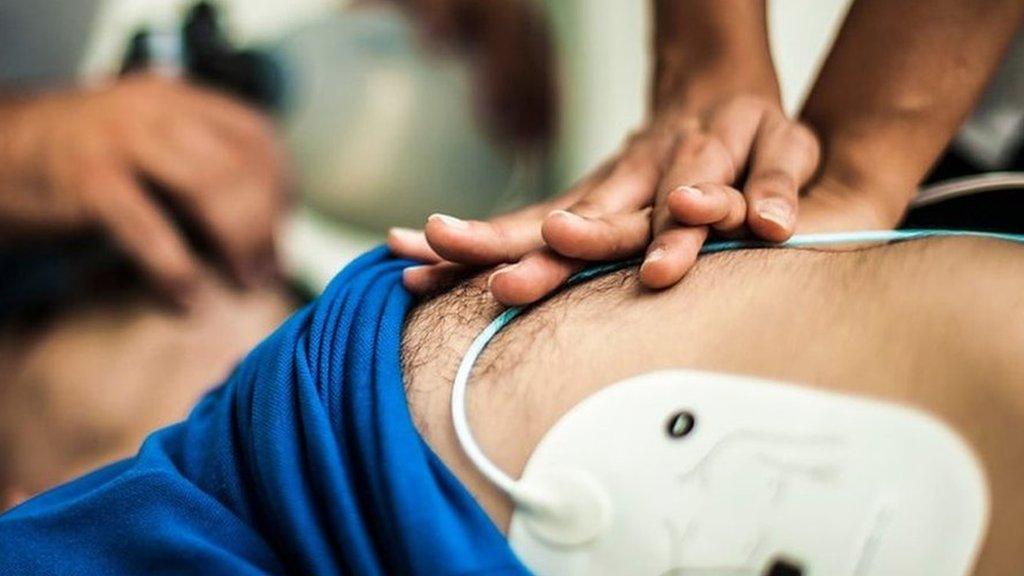Call 999 with early heart attack symptoms, NHS says
- Published

Thousands more lives could be saved if people knew how to spot the early signs of a heart attack, the NHS has said.
Doctors want people to be more aware of common early symptoms such as sweating and tightness in the chest - and to call 999 if they experience them.
It comes after a poll found fewer than half of people knew to dial 999 for some of the more vague signs.
There are more than 80,000 hospital admissions for heart attacks each year in England.
The overall survival rate for people experiencing a heart attack is seven in 10, rising to nine in 10 for those who seek early hospital treatment.
The new NHS campaign runs from 14 February to 31 March and tells people to dial 999 if they experience common early symptoms including sweating, uneasiness and chest tightness.
In the poll of 2,000 people, only 41% said they knew sweating was an early symptom while just 27% knew that light-headedness, feeling weak or uneasy was also common.
Prof Stephen Powis, NHS England's medical director, said thousands of deaths could be prevented with earlier treatment if people recognise these vital signs.
"Sadly, cardiovascular disease causes a quarter of all deaths across the country and we have identified this as the single biggest area where we can save lives over the next decade."
Prof Powis added: "It can be easy to dismiss early symptoms as they don't always feel severe, but it is never too early to dial 999 in this circumstance - and the faster you act, the better the chance of a full recovery."
The campaign also seeks to raise awareness of cardiac arrest - which is not the same as a heart attack. There is often no warning with a cardiac arrest and the person quickly loses consciousness.
Those experiencing a cardiac arrest will usually die within minutes if they do not receive treatment. A heart attack can lead to a cardiac arrest.

Symptoms of a heart attack can include:
chest pain - a sensation of pressure, heaviness, tightness or squeezing across the chest
pain in other parts of the body - it can feel as if the pain is spreading from your chest to your arms (usually the left arm is affected, but it can affect both arms), jaw, neck, back and abdomen
feeling lightheaded or dizzy
sweating
shortness of breath
feeling sick or being sick
an overwhelming sense of anxiety (similar to having a panic attack)
coughing or wheezing
Although the chest pain is often severe, some people may only experience minor pain, similar to indigestion. While the most common symptom of a heart attack in both men and women is chest pain, women are more likely to experience other symptoms such as shortness of breath, nausea/vomiting and back or jaw pain

The campaign is being supported by celebrities such as One Foot in the Grave actor Richard Wilson and Sky Sports presenter Peter Dale, known as Tubes.
Mr Wilson said: "I've battled with my heart health for a while, and since experiencing a heart attack I've really opened my eyes to the impact it's had on my life.
"I got more tired, I'm able to walk around less and my memory has suffered as well. The scariest part is that at the time I did not know enough about heart attacks or heart health."
How to use a defibrillator and save a life

LIVE THE LIE TO FIND THE TRUTH: Becky's obsession with an influencer leads to dark places
WHO SAID 'FILM NIGHT'?: Choose from a great selection of classics and blockbusters

Related topics
- Published8 January 2022

- Published23 August 2021
